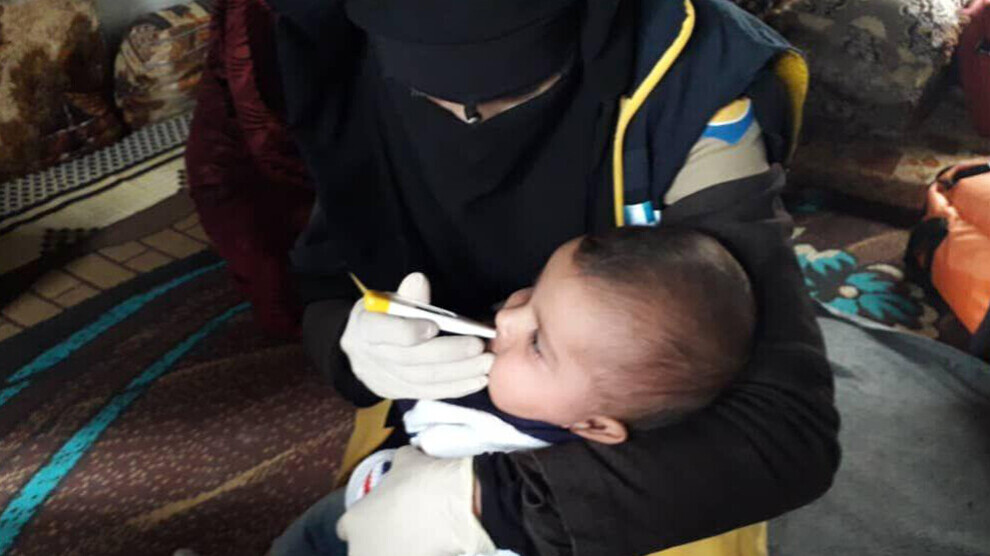Poor conditions in refugee camps negatively affect children
Dr. Besam Al-Nawaf states that children living in the refugee camps in northern Syria are badly affected by environmental pollution and calls for the establishment of health centers and emergency centers in the camps.

SOOHÊR EL-IDLIBÎ
Idlib - The people of Idlib, who fled the war and settled in refugee camps, have to struggle with the negative living conditions in the camps. Children living in the refugee camps located in northern Syria suffer from many diseases throughout the year due to the smoke rising from heating appliances and burning wastes and the dust rising from the canals and dirt roads in summer. The lack of access to primary healthcare services in the camps makes bad conditions in the camps even worse.
“Children constantly get sick”
32-year-old Sabah Al-Hamid is one of the people living in the camps of Idlib. Expressing her despair, she told us that she should take her three-year-old son Ala El-Dami to the hospital in the city once a month for treatment. Her family had to leave their hometown due to the ongoing military operations. They have been living in the Kefer Lusin refugee camp, “Since then children have constantly got sick,” she said.
“Children have difficulty in breathing”
Sabah Al-Hamid said that one of the most important reasons why her son is constantly sick is the smoke rising from the heaters. “Most of the people living in the camp burn nylon, coals, clothes, and shoes to get warm in winter. The smoke rising from them causes diseases, especially among children. Children have difficulty in breathing. The children suffer from respiratory diseases not only in winter but also in summer. Dust storms in summer and pollution around the camp also cause diseases.”
The hospital is far away from the camp
28-year-old Rima El-Redwan, one of the camp residents, complains about the distance between the hospital and the camp. “The thing that bothers me the most is the illness of my one-and-a-half-year-old daughter, Leyla. We don’t know what we should do when she has difficulty breathing at night. There is no health center in the camp and we have to wait until morning to take our children to the hospital which is far away from the camp. Some people have to take a taxi out of desperation but it is dangerous due to the lack of security.”
Inflammatory diseases increase
Noting that there is an increase in the rate of lung diseases among children living in camps in northern Syria, Dr. Besam Al-Nawaf said, “Respiratory diseases have doubled in recent years. Diseases such as rabies, pneumonia, lung cancer, and common colds have significantly increased in the camps. Children and babies are most affected by these diseases. These diseases are on the rise in the camps due to bad conditions.”
People living in the camps need health centers
Emphasizing that health centers and emergency centers should be established in the camps, Besam El-Nawaf told us that free-charge medicines should be provided to the people living in the camp. She also noted that efforts should be made to increase the level of services and cleaning products should be sent to the camps.
